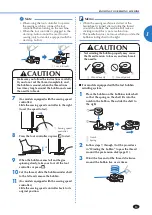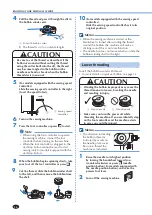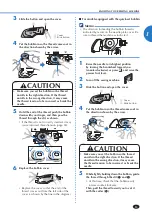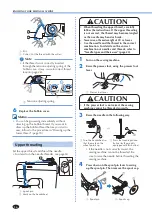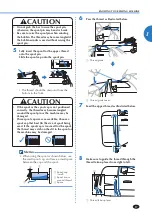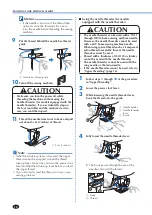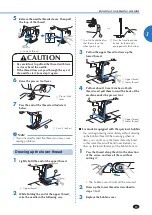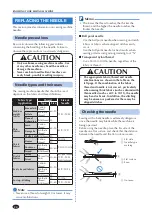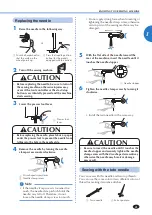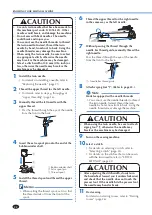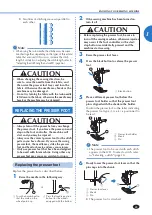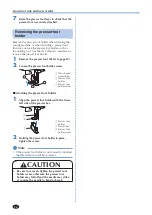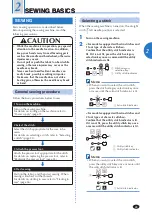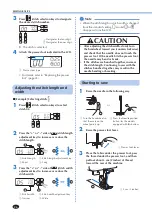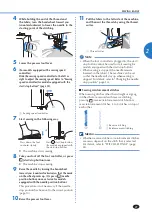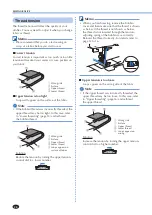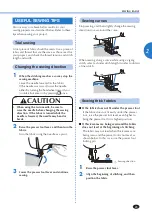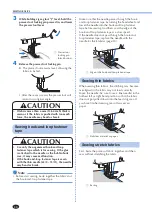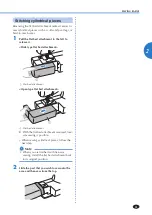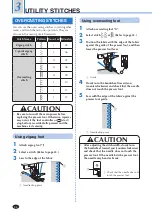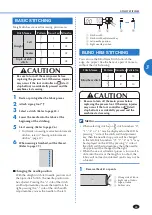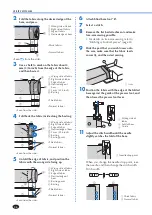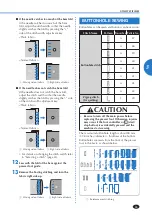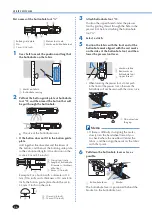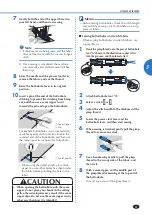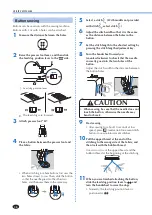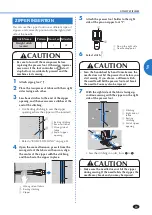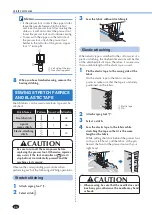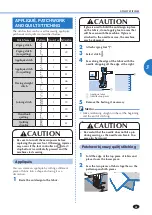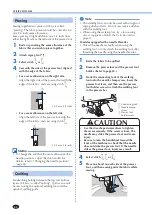
SEWING BASICS
27
2
4
While holding the end of the thread and
the fabric, turn the handwheel toward you
(counterclockwise) to lower the needle to the
starting point of the stitching.
5
Lower the presser foot lever.
6
(For models equipped with a sewing speed
controller)
Slide the sewing speed controller to the left or
right to adjust the sewing speed. Refer to “Sewing
speed controller (for models equipped with the
start/stop button)” (page 10).
1
Sewing speed controller
7
Start sewing in the following way.
or
Press down the foot
controler slowly.
Press (start/stop button)
(for models equipped with
the start/stop button).
X
The machine starts sewing.
8
Take your foot off the foot controller, or press
(start/stop button) once.
X
The machine stops sewing.
9
Raise the needle by turning the handwheel
toward you (counterclockwise) so that the mark
on the wheel points up. (Or press (needle
position button) once or twice for models
equipped with the needle position button.)
This procedure is not necessary if the needle
stop position has been set to the raised position
(page 10).
10
Raise the presser foot lever.
11
Pull the fabric to the left side of the machine,
and then cut the threads by using the thread
cutter.
1
Thread cutter
Note
• When the foot controller is plugged in, the start/
stop button cannot be used to start sewing (for
models equipped with the start/stop button).
• When sewing is stopped, the needle remains
lowered (in the fabric). The machine can be set
so that the needle will stay up when sewing is
stopped. For details, refer to “Changing the needle
stop position” (page 10).
■
Sewing reinforcement stitches
When sewing stitches other than straight or zigzag
stitches that are secured with reverse stitching,
pressing (reverse/reinforcement stitch button)
sews reinforcement stitches, 3 to 5 stitches on top of
each other.
1
Reverse stitching
2
Reinforcement stitching
Memo
• Whether reverse stitches or reinforcement stitches
are sewn depends on the stitch that is selected.
For details, refer to “STITCH SETTINGS” (page
53).

